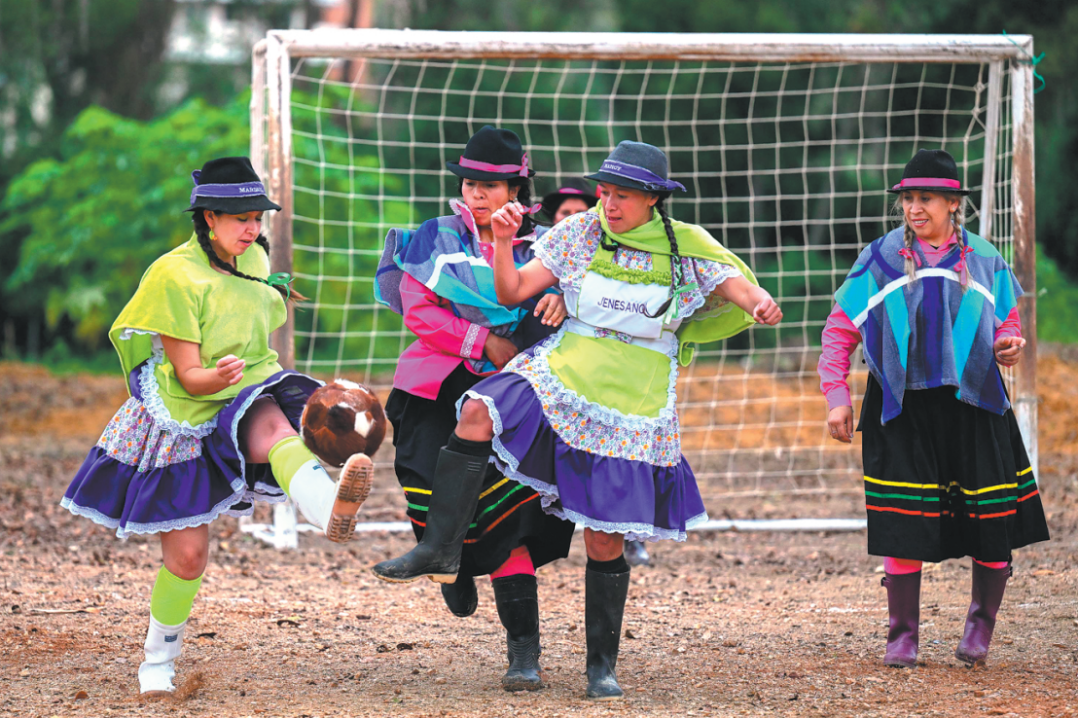Integrated mango cultivation revitalizes Huaping
China Daily | Updated: 2024-09-24 09:36

KUNMING — In the early autumn, mango trees laden with heavy fruit can be spotted across a mountain in Huaping county, Southwest China's Yunnan province, and their fragrance wafts through the air.
Farmers are busy pruning, packing and loading the fruit onto transport vehicles, which then make their way down the mountain.
"The period from July to October each year is the optimal harvesting time for Huaping mangoes of various varieties. We have received business orders from Shanghai, Zhejiang and Guangdong, and even from Singapore, among others," said Luo Qing, a local mango distributor. "To ensure timely delivery, we have also increased our workforce in recent days."
Located near the middle section of the Jinsha River in northwestern Yunnan, Huaping enjoys a climate characterized by abundant sunlight and plentiful rainfall. These conditions make it an advantageous production area for late-ripening mangoes.
Last year, the mango planting area in Huaping climbed to 30,600 hectares, with a fresh fruit output of 440,000 metric tons. Its agricultural output value amounted to 2.86 billion yuan ($403 million), and the number of people engaged in its mango industry approached 100,000.
This year, Huaping's mango output is expected to exceed 465,000 tons, with an agricultural output value surpassing 3.05 billion yuan.
Li Chaogang, deputy director of the agriculture and rural affairs bureau of Huaping, said that the county has established a mango industry development center. It has also strengthened financial support and introduced high-tech mango cultivation methods, ensuring a steady increase in the county's mango production.
"Farmers have applied new tools and technologies such as unmanned aerial vehicles and wireless solar monitoring systems, facilitating the mechanization, informatization and intelligent operations of weeding and fertilization in the mango industry, among other processes," Li said.
As the scale and output of its mango industry expand, Huaping has integrated mango cultivation with deep processing, extending its mango industrial chain. Various products made from mangoes — such as mango puree and freeze-dried mango — have become popular among consumers.
"Welcome to my broadcasting room," said Qu Xinling, who livestreamed to promote Huaping mangoes to viewers from a warehouse operated by Lijiang Xinmeier Agricultural Science & Technology Development Company.
According to Qu, the company can sell up to 3 tons of mangoes each day of the picking season through livestreaming.
The company is among the many e-commerce platforms operating in Huaping. In recent years, the county has intensified its e-commerce platform construction efforts and established a livestreaming base to expand its mango sales channels.
Driven by the development of its mango industry, the county has explored new ways of integrating agriculture with tourism and established a mango plantation, where tourists can enjoy panoramic views of 1,666 hectares of concentrated mango orchards. Visitors can also pick mangoes and enjoy having coffee in the woods on-site.
He Guanchen, an official of Rongjiang town, where the orchard is located, said the plantation receives an average of nearly 600 tourists per day during weekends. Since it opened on Jan 1, about 150,000 tourists from various locations have visited the plantation.
He Zhen, county head of Huaping, said that since the first mango tree was planted in the county in 1965, its mango industry has transformed from a single cultivation sector into a full industrial chain integrating cultivation, processing, sales and tourism.
"Huaping will enhance the added value of its mango industry, injecting strong impetus into rural revitalization," He said.
China is actively promoting the modernization and revitalization of rural industries. According to the Ministry of Agriculture and Rural Affairs, significant progress has been made in both agricultural product processing and rural tourism.
To date, 1,953 beautiful leisure villages have been established and 139 industrial clusters, each generating over 10 billion yuan in output value, have been developed.
Xinhua
























